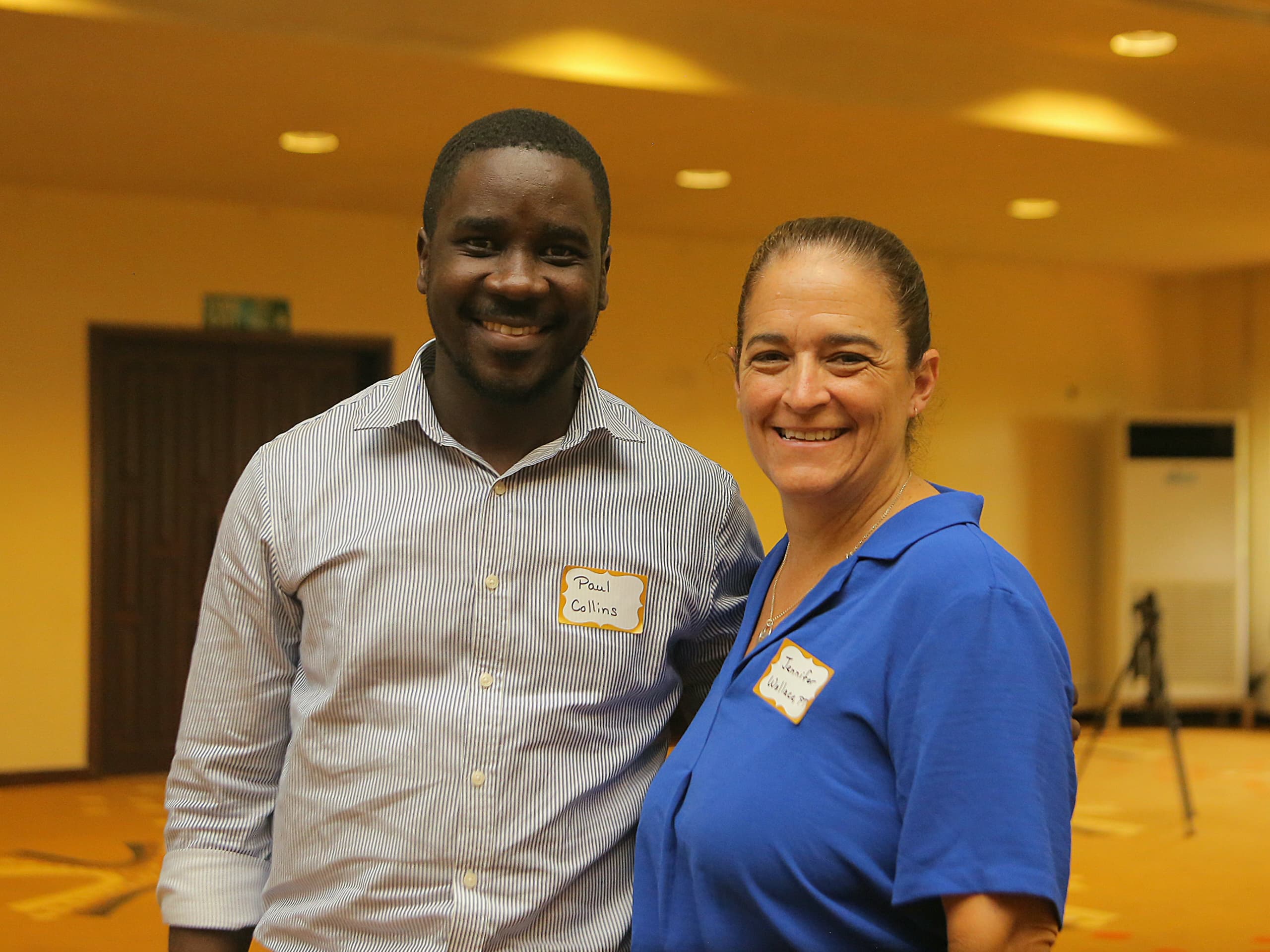Our DMD Approach
1. Raising Awareness
Unfortunately, many people in rural Africa are unaware of Duchenne Muscular Dystrophy (DMD). Due to a lack of knowledge, some families attribute the condition to witchcraft or curses, leading to stigma and isolation. Over the years, we have worked tirelessly to educate communities about DMD, dispelling myths and misconceptions through awareness programs.
We have developed documentaries, manuals, posters, Podcasts and conducted radio and media campaigns to spread accurate information about Duchenne Muscular Dystrophy. Our awareness efforts aim to: Give a voice to Duchenne families, ensuring their concerns are heard by relevant authorities. Reduce stigma surrounding the condition, fostering acceptance and support within communities.
2. Providing Mobility Tools
Many children with Duchenne lose their ability to walk and require assistive devices to enhance their mobility and quality of life. We provide wheelchairs, braces, walkers, and standing devices, helping children move with more independence and comfort. To ensure each child gets the right support, our occupational and physical therapists conduct assessments and recommend the most suitable mobility equipment.
3. Therapy Services
Through occupational and physiotherapy, we offer free therapy sessions to help Duchenne children manage pain, improve muscle function, and sustain their overall well-being. Our therapists also train parents on essential care routines and physical exercises to ensure continuous care at home.
4. Nutritional Support & Supplements
Many of the families we assist are economically disadvantaged and struggle to afford proper nutrition and medical supplies for their children. We support Duchenne patients with essential medications such as corticosteroids (Deflazacort and Prednisolone), which help slow disease progression.
Additionally, we provide nutritional supplements, including:
–Calcium & Vitamin D – for bone health.
–Glutamine & Carnitine – to support muscle function.
–Resveratrol – an antioxidant with potential benefits for muscular health.
These supplements have been instrumental in sustaining the health and well-being of the children under our care.
5.Counseling Emotional Support
A Duchenne diagnosis can be emotionally devastating for both the child and their family. Many parents struggle to come to terms with the reality of their child’s condition. Our trained counselors provide:
Emotional and psychological support to parents and caregivers. Guidance for newly diagnosed families to help them navigate their journey. Grief counseling for families who have lost loved ones to Duchenne.
6. Sustainable Livelihood Programs
Duchenne care is expensive, and many families in rural Uganda struggle to meet the high medical and daily living costs. To help them achieve financial independence, we assess the most vulnerable families and set up small businesses for them.
These businesses help families: Generate income to support patient care and household needs. Reduce dependency on external aid. Improve their overall well-being and financial stability.
Through these initiatives, Sapphire Africa Foundation is committed to improving the lives of Duchenne patients and their families, ensuring they receive the care, support, and dignity they deserve.
Unfortunately, many people in rural Africa are unaware of Duchenne Muscular Dystrophy (DMD). Due to a lack of knowledge, some families attribute the condition to witchcraft or curses, leading to stigma and isolation. Over the years, we have worked tirelessly to educate communities about DMD, dispelling myths and misconceptions through awareness programs.
We have developed documentaries, manuals, posters, Podcasts and conducted radio and media campaigns to spread accurate information about Duchenne Muscular Dystrophy. Our awareness efforts aim to: Give a voice to Duchenne families, ensuring their concerns are heard by relevant authorities. Reduce stigma surrounding the condition, fostering acceptance and support within communities.
2. Providing Mobility Tools
Many children with Duchenne lose their ability to walk and require assistive devices to enhance their mobility and quality of life. We provide wheelchairs, braces, walkers, and standing devices, helping children move with more independence and comfort. To ensure each child gets the right support, our occupational and physical therapists conduct assessments and recommend the most suitable mobility equipment.
3. Therapy Services
Through occupational and physiotherapy, we offer free therapy sessions to help Duchenne children manage pain, improve muscle function, and sustain their overall well-being. Our therapists also train parents on essential care routines and physical exercises to ensure continuous care at home.
4. Nutritional Support & Supplements
Many of the families we assist are economically disadvantaged and struggle to afford proper nutrition and medical supplies for their children. We support Duchenne patients with essential medications such as corticosteroids (Deflazacort and Prednisolone), which help slow disease progression.
Additionally, we provide nutritional supplements, including:
–Calcium & Vitamin D – for bone health.
–Glutamine & Carnitine – to support muscle function.
–Resveratrol – an antioxidant with potential benefits for muscular health.
These supplements have been instrumental in sustaining the health and well-being of the children under our care.
5.Counseling Emotional Support
A Duchenne diagnosis can be emotionally devastating for both the child and their family. Many parents struggle to come to terms with the reality of their child’s condition. Our trained counselors provide:
Emotional and psychological support to parents and caregivers. Guidance for newly diagnosed families to help them navigate their journey. Grief counseling for families who have lost loved ones to Duchenne.
6. Sustainable Livelihood Programs
Duchenne care is expensive, and many families in rural Uganda struggle to meet the high medical and daily living costs. To help them achieve financial independence, we assess the most vulnerable families and set up small businesses for them.
These businesses help families: Generate income to support patient care and household needs. Reduce dependency on external aid. Improve their overall well-being and financial stability.
Through these initiatives, Sapphire Africa Foundation is committed to improving the lives of Duchenne patients and their families, ensuring they receive the care, support, and dignity they deserve.



Duchenne primarily affects males, with 1 in 3500 to 5000 boys born worldwide having Duchenne. In rare cases, it can also affect females. Although the first signs of Duchenne may appear as early as 4 months of age, more noticeable signs such as problems walking or standing usually emerge around the age of 2 or 3.